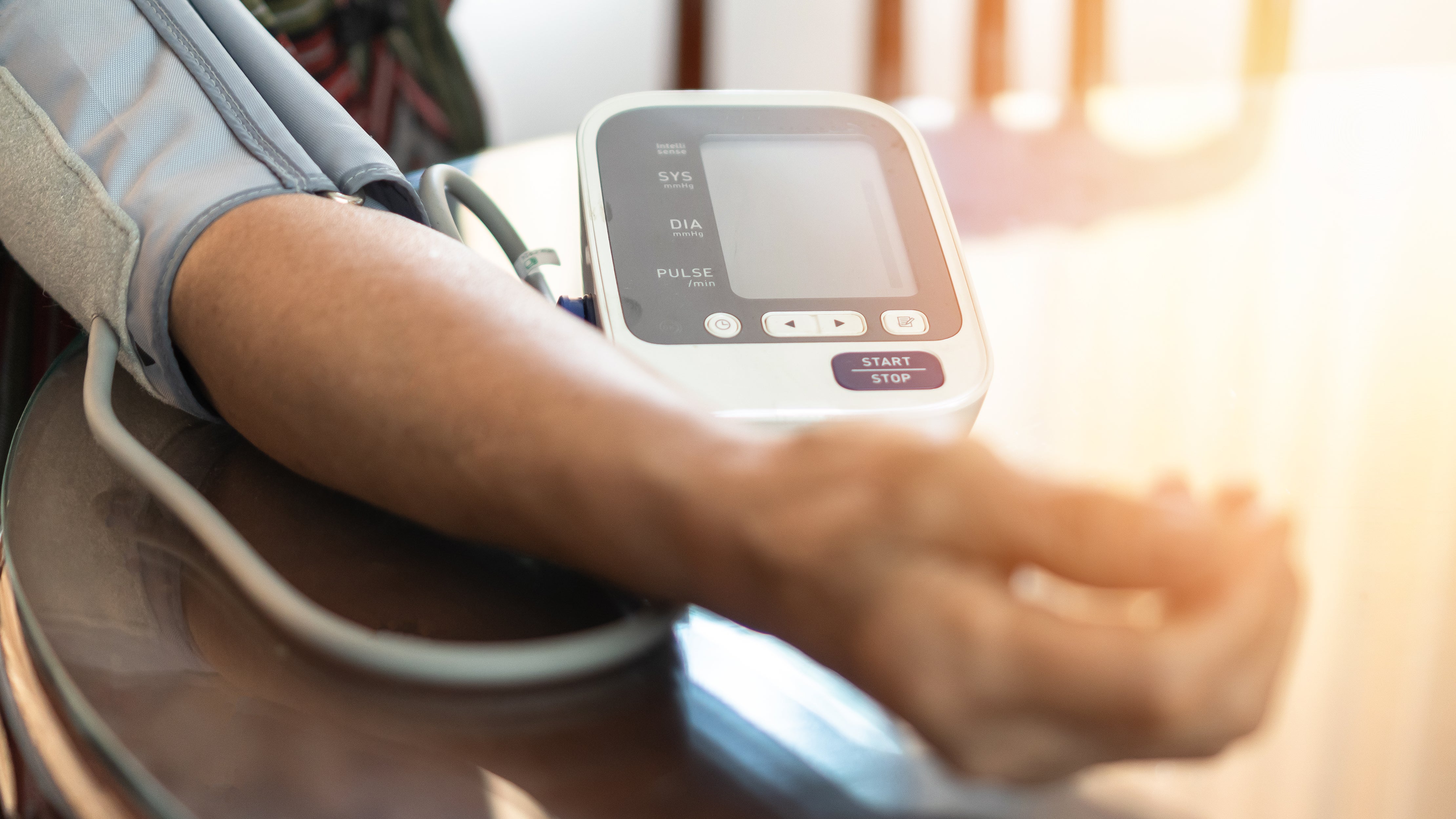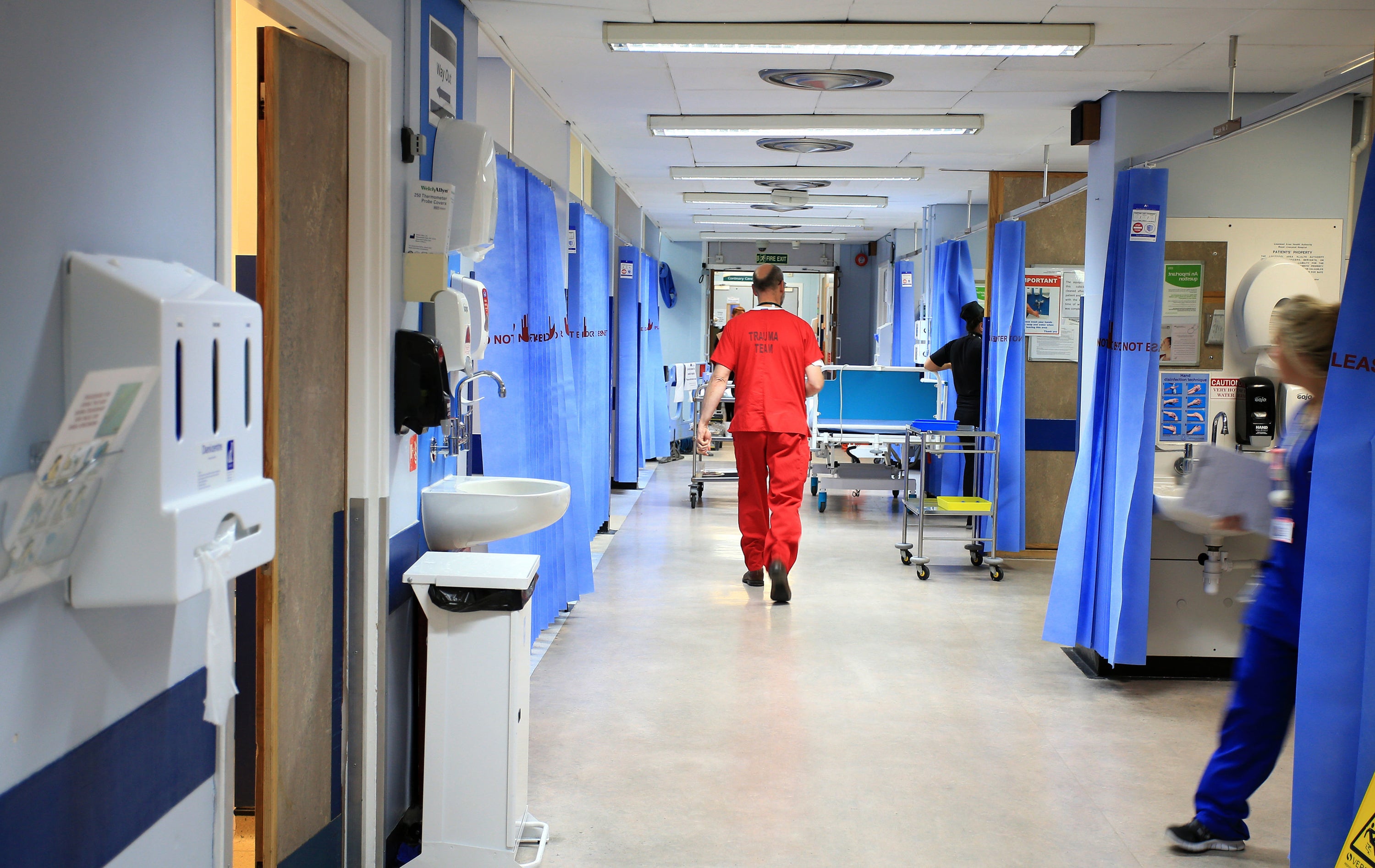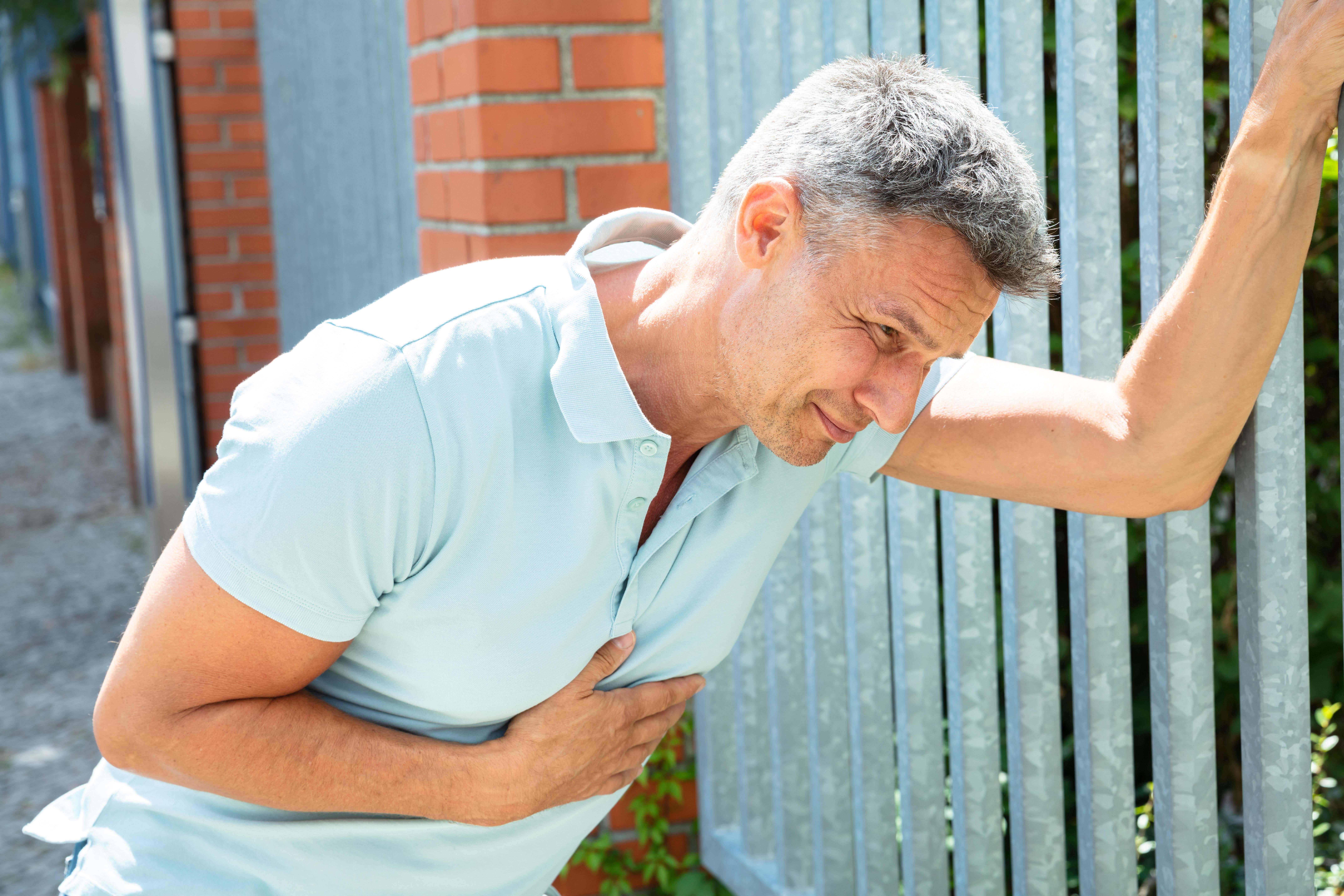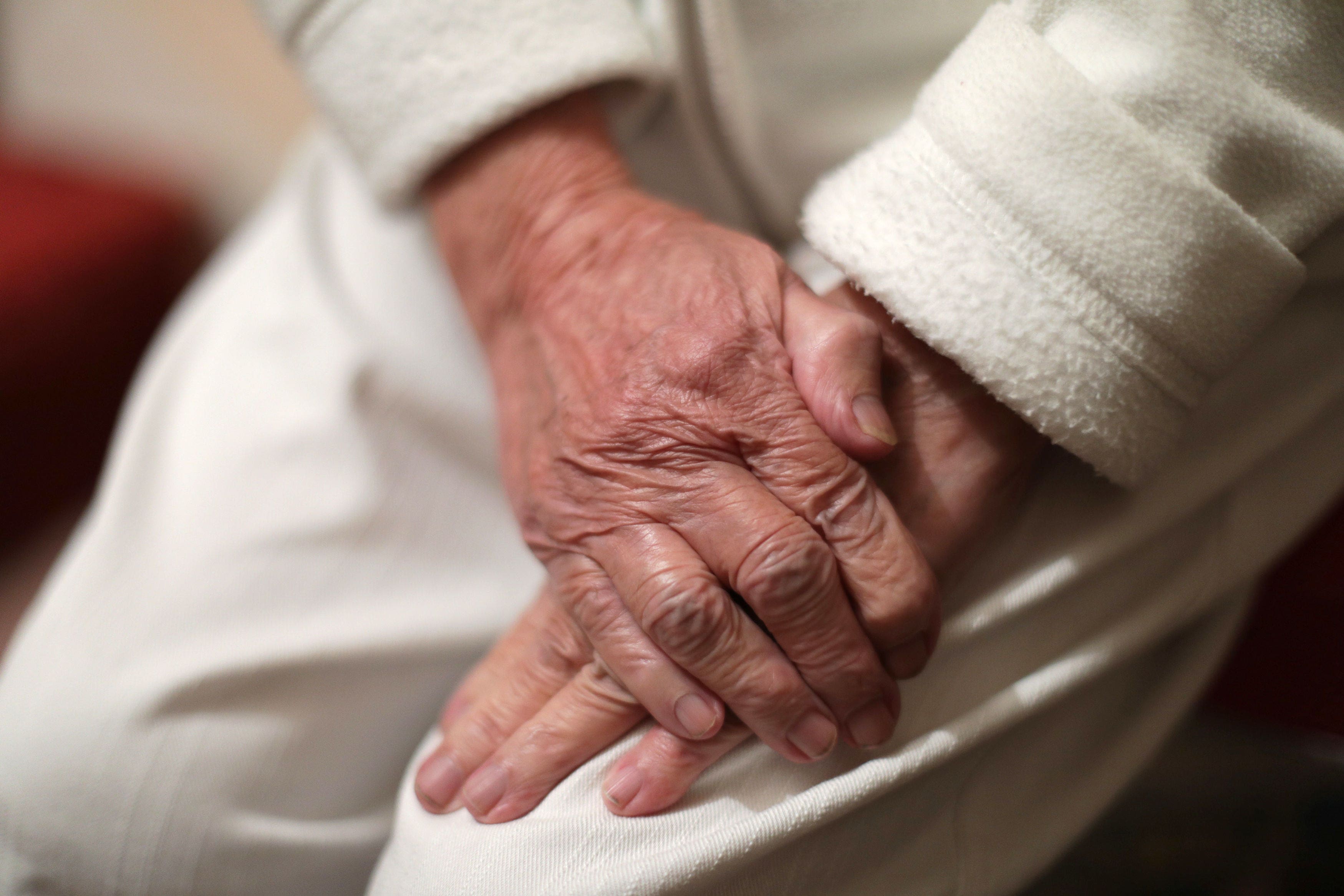Why just one stroke symptom means you should call 999 as new NHS advice revealed
The NHS has updated its guidance on recognising stroke symptoms in a major new campaign
Your support helps us to tell the story
From reproductive rights to climate change to Big Tech, The Independent is on the ground when the story is developing. Whether it's investigating the financials of Elon Musk's pro-Trump PAC or producing our latest documentary, 'The A Word', which shines a light on the American women fighting for reproductive rights, we know how important it is to parse out the facts from the messaging.
At such a critical moment in US history, we need reporters on the ground. Your donation allows us to keep sending journalists to speak to both sides of the story.
The Independent is trusted by Americans across the entire political spectrum. And unlike many other quality news outlets, we choose not to lock Americans out of our reporting and analysis with paywalls. We believe quality journalism should be available to everyone, paid for by those who can afford it.
Your support makes all the difference.A major new campaign has been launched to help people identify stroke symptoms after it emerged the average time it took for a sufferer to dial 999 was an hour and a half.
The NHS on Monday urged the public to call 999 immediately if anyone experiences one of the three common symptoms – struggling to smile, having difficulty raising an arm, or slurring their words.
It comes after new figures showed the average time between the first symptom and an emergency call being made was 88 minutes across more than 41,000 patients.

Strokes and mini-strokes are caused by a blood clot or bleed on the brain which cuts off the blood supply, killing brain cells.
They are the fourth single leading cause of death in the UK with 38,000 stroke-related deaths each year, and can also lead to long-term disabilities such as paralysis, memory loss and communication problems without fast treatment.

Analysis of data by the Sentinel Stroke National Audit Programme at King’s College London for 2023-24 revealed there was a significant delay in people seeking treatment, which could impact their long-term recovery.
A poll of 2,000 adults in England found that more than half of respondents (57%) believed two to three symptoms of a stroke were needed before calling 999.
A new advert showing individuals with the example symptoms will run across TV, on-demand and radio in England until mid-December, while a new film featuring stroke survivors listening back to audio recordings of their life-saving 999 calls has also been released.
Since 2009 the NHS has advised the public to remember the acronym FAST – face, arms, speech, and time – when spotting and reacting to signs of a stroke. In its updated advice, it says just one major symptom is enough to dial the emergency number.
Sudden weakness or numbness on one side of your body, sudden loss of vision or blurred vision, memory loss or dizziness, and unsteadiness are all other symptoms that could indicate someone is having a stroke.
What are the signs of a stroke?
A stroke occurs when blood stops flowing to a part of your brain.
The first signs include:
- Face weakness – it might be hard to smile, and one side of your face may droop
- Arm weakness – you may not be able to fully lift both arms and keep them there because of weakness or numbness in one arm
- Speech problems – you may slur your words or sound confused
Other symptoms might be:
- Sudden weakness or numbness on one side of your body (including in your leg)
- Sudden loss of vision or blurred vision in one or both eyes
- Sudden difficulty speaking or thinking of words
- Sudden memory loss or confusion
- Sudden severe headache
- Sudden dizziness, unsteadiness or a sudden fall, especially with any of the other signs

NHS national medical director Professor Sir Stephen Powis said the new figures highlight “very clearly” that more should be done to support people to recognise stroke symptoms in themselves and others.
He said: “Stroke symptoms can be less obvious or dramatic than you might expect, but, even if it doesn’t seem like it, any sign of stroke is always an emergency and it’s vital you call 999 immediately.
“This campaign is so important – greater awareness of the need to act fast and dial 999 could help save and protect many more lives, as we know that earlier recognition of symptoms and immediate action to call 999 can enable faster access to specialist treatment and the best chance of reducing long-term effects of a stroke.”
Around 100,000 people have a stroke in the UK each year and they can happen to anyone of any age.
However, those who are over 50, come from a black or South Asian background, or live with existing conditions such as high blood pressure are at increased risk.
Dionne Hudson, who features in the new campaign film, first noticed a strange feeling in her hand as though she could not reach or grip her phone, but her face and speech were unaffected so she went to sleep.

She called 999 after her symptoms worsened and went to hospital to have a CT scan soon afterwards.
The 58-year-old, from Surrey, said: “The doctors were amazed that I had survived my stroke, as it had actually occurred the night before I called 999.
“Looking back, I was very lucky as the weakness in my arm was a clear sign of a stroke, but because I didn’t have a dramatic symptom affecting my face or speech, I didn’t consider that I should get help sooner.”
Dr David Hargroves, NHS national clinical director for stroke and a consultant stroke physician, said: “When someone has a stroke, it’s estimated they may lose around two million brain cells a minute, which is why rapid diagnosis and treatment is critical – the first sign of a stroke might not seem like much, but face or arm or speech, at the first sign it’s time to call 999.
“Thanks to greater awareness of the symptoms and advances in NHS care, more people are now surviving a stroke than ever before, but there is much more to do help save lives and reduce the long-term impact of strokes. Acting FAST remains vital – whether it is a friend, loved one or even a passer-by, dialling 999 quickly saves lives.”
Each year the programme engages over 1.3 million people and prevents around 500 heart attacks and strokes a year.

Join our commenting forum
Join thought-provoking conversations, follow other Independent readers and see their replies
Comments